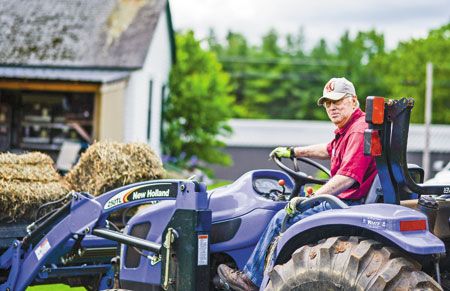4 veterinarians reveal how burnout changed their lives
Four veterinarians share how they faced burnout and made veterinary medicine work for them.

Dr. Jack Kibbee
Burnout's perfect storm
Confronted by such challenges as severe winters hurting business, practicing alone, the economic downturn and growing competition, Wanda Sisum, DVM, owner of Cape Cod Cat Hospital in Forestdale, Massachusetts, says she faces a “perfect storm” at her cat hospital.

Dr. Wanda Sisum“You just feel burned out constantly-like a hamster on a wheel, spinning around and not getting anywhere,” she tells dvm360.
Sisum's passion for veterinary medicine has become a burden.
“Suddenly you turn around, and your dream has become a ball and chain,” she says.
It helps to attend local veterinary meetings and national conferences and know she isn't alone in her experiences, she says. Although she would still become a veterinarian if she could do it over again, she says she would warn aspiring veterinarians to research the profession and recognize its challenges.
Big city life to country practice
Paula Fitzpatrick, co-owner of AnimalFitness, and her husband, Carlton R. “Jack” Kibbee, DVM, moved from San Diego, California, to Hinsdale, New Hampshire, in 2008 to return to their roots-and to balance their work life with what they loved. The change enabled them to tend to their farm and crops between veterinary appointments, choose their clients and mentor veterinary students.

“In our industry, so often the practice can run your life versus you running the practice. We wanted to concentrate on the things we loved, and although we're very passionate about animals-that's our primary focus-we can't satisfy all their humans,” Fitzpatrick says. “We've gotten much better about selecting our clients based on who we can truly satisfy. Because if you try to satisfy everybody, you'll burn yourself out.”
Find the right fit
Cherie Buisson, DVM, owner of Veterinary Relief and Support Services LLC, in Largo, Florida, speaks nationally about compassion fatigue and hospice care at conferences, shelters and private practices. She explains how unhappy veterinarians can get out of their rut.

Dr. Cherie Buisson“Typically, what I teach is that the biggest factor is what you're looking at in the mirror. It's all about how you react to the stress,” Buisson says. “Certainly, clients can be stressful, coworkers can be stressful, pets can be stressful, but it's all in how you handle it.”
After eight years in private practice, she recognized she needed to make changes. She now does a mix of hospice care, public speaking and veterinary relief work.
“I basically decided to put myself in situations where I felt positive most of the time, and that pretty much fixed it,” she says.
The profession can help reduce compassion fatigue by telling veterinary students they can pursue other routes than private practice, she says.
“I just found that private practice wasn't for me, and they don't teach us in school that that's a possibility,” she says. “It's just kind of assumed that most everybody is going to go into that, and it took me about eight years to figure out that I just didn't enjoy private practice.”
Starting over
Cheryl Sackler, DVM, owner of Beacon Falls Animal Hospital, in Beacon Falls, Connecticut, says she sold her practice to a corporation and continued to work there, but she struggled with serving two masters-the client and the corporation-because they sometimes had conflicting interests. She experienced depression, suicidal thoughts and anger before she was fired.

Dr. Cheryl SacklerShe says she hasn't experienced problems maintaining compassion for pets and clients, but it was easier outside of corporate practice.
“I found working for a corporation was soul-sucking and I couldn't muster up the compassion that I can when I'm working for myself,” she says.
Sackler says she is happier since opening up a new practice and hiring back her old team members.